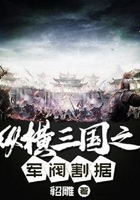In full justice to the Chesapeake Club the scribe must admit that such light-weights as Billy Talbot, Torn Gunning, and Carter Thorn did not fairly represent the standing of the organization. Many of the most cultivated and enlightened men about Kennedy Square and the neighboring country enjoyed its privileges; among them not only such men as Richard Horn, Nathan Gill, the Chief-Justice of the State, and those members of the State Legislature whose birth was above reproach, but most of the sporting gentry of the county, as well as many of the more wealthy planters who lived on the Bay and whose houses were opened to their fellow-members when the ducks were flying.
Each man's lineage, occupation, and opinions on the leading topics of the time were as well known to the club as to the man himself. Any new-corner presenting himself for membership was always subjected to the severest scrutiny, and had to be favorably passed upon by a large majority of the committee before a sufficient number of votes could be secured for his election.
The only outsider elected for years had been Amos Cobb, of Vermont, the abolitionist, as he was generally called, who invariably wore black broad-cloth and whose clean-shaven face--a marked contrast to the others--with its restless black eyes, strong nose, and firm mouth, was as sharp and hard as the rocks of his native State. His election to full membership of the Chesapeake Club was not due to his wealth and commercial standing--neither of these would have availed him--but to the fact that he had married a daughter of Judge Wharton of Wharton Hall, and had thus, by reason of his alliance with one of the first families of the State, been admitted to all the social privileges of Kennedy Square. This exception in his favor, however, had never crippled Cobb's independence nor stifled his fearlessness in expressing his views on any one of the leading topics of the day. The Vermonter had worked with his hands when a boy on his father's farm, and believed in the dignity of labor and the blessings of self-support. He believed, too, in the ******* of all men, black and white, and looked upon slavery as a crime. He expressed these sentiments openly and unreservedly, and declared that no matter how long he might live South he would never cease to raise his voice against a system which allowed a man--as he put it--"to sit down in the shade and fan himself to sleep while a lot of niggers whose bodies he owned were sweating in a corn-field to help feed and clothe him."
These sentiments, it must be said, did not add to his popularity, although the time had not yet arrived when he would have been thrown into the street for uttering them.
Nathan Gill was a daily visitor. He was just mounting the club steps, his long pen-wiper cloak about his shoulders, as Oliver, after his interview with Colonel Clayton, passed down the street on his way back to his mother. Nathan shook hands with the Colonel, and the two entered the main room, and seated themselves at one of the tables.
Billy Talbot, who had moved to the window, and who had been watching Oliver until he disappeared around the corner, dropped his eye-glass with that peculiar twitch of the upper lip which no one could have imitated, and crossed the room to where Nathan and Colonel Clayton had taken their seats.
Waggles, the scrap of a Skye terrier, who was never three feet from Billy's heels, instantly crossed with him. After Billy had anchored himself and had assumed his customary position, with his feet slightly apart, Waggles, as was his habit, slid in and sat down on his haunches between his master's gaiters.
There he lifted his fluffy head and gazed about him.
The skill with which Mr. Talbot managed his dog was only equalled by the dexterity with which he managed his eye-glass; he never inadvertently stepped on the one nor unconsciously let slip the other. This caused Mr. Talbot considerable mental strain, but as it was all to which he ever subjected himself he stood the test bravely.
"Who is that young man, Colonel" Billy began, as he bent his head to be sure that Waggles was in position. He had been abroad while Oliver was growing up, and so did not recognize him.
"That's Richard Horn's son," the Colonel said, without raising his eyes from the paper. The Colonel never took Billy seriously.
"And a fine young fellow he is," broke in Nathan, straightening himself proudly.
"Hope he don't take after his father, Gill. By the way, what's that old wisionary doing now?" drawled Billy, throwing back the lapels of his coat, and slapping his checked trousers with his cane.
"Larst time you talked to me about him he had some machine with w'eels and horse-shoe magnets, didn't he? He hasn't been in here for some time, so I know he's at work on some tomfoolery or other. Amazing, isn't it, that a man of his blood, with a cellar of the best Madeiwa in the State, should waste his time on such things. Egad! I cawn't understand it."
Some of Billy's expressions, as well as his accent, came in with his clothes. "Now, if I had that Madeiwa, do you know what I'd do with it? I'd--"
"Perfectly, Billy," cried a man at the next table, who was bending over a game of chess. "You'd drink it up in a week." Talbot had never been known by any other name than Billy, and never would be as long as he lived.
When the laugh had subsided, Nathan, whose cheeks were still burning at the slighting way in which Billy Talbot had spoken of Richard, and who had sat hunched up in his chair combing the white hair farther over his ears with his long, spare fingers, a habit with him when he was in deep thought, lifted his head and remarked, quietly, addressing the room rather than Talbot:
"Richard's mind is not on his cellar; he's got something to think of besides Madeira and cards and dogs." And he looked toward Waggles. "You will all, one day, be proud to say that he lived in our town. Richard is a genius, one of the most remarkable men of the day, and everybody outside of this place knows it; you will be compelled to admit it yet.















